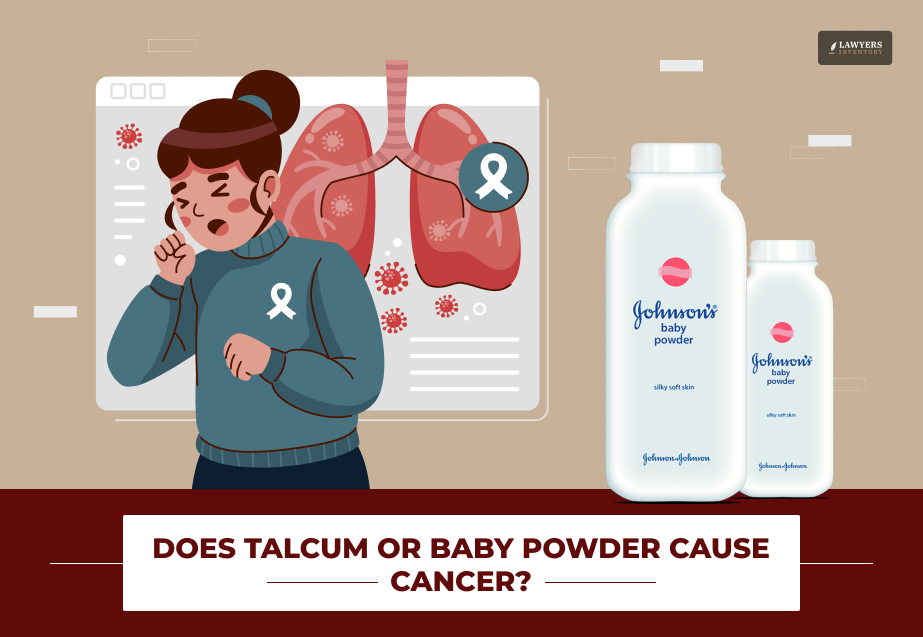
After J&J discontinued one of the most popular products, the baby powder, amidst a lawsuit, most people have started searching for one thing: Does talcum powder cause cancer?
A great number of families have been using talcum powder. This is made from hydrated magnesium silicate, talc, which has served as a moisture absorber and skin protector for decades.
The United States Geological Survey reports that the country produced approximately 450,000 tons of high-grade talc in 2023.
However, recently, something happened that shook the world. The relationship between talcum powder and cancer has created a huge sensation, steering the discussion on its use further.
Some researchers have identified the powder as the cause of ovarian cancer. And others have underlined the existence of a small amount of asbestos in certain talc products.
A talcum powder ovarian cancer lawyer in Riverview states that having legal representation if it is found that you or your loved one is suffering from ovarian cancer related to talcum powder use will be a crucial step in receiving justice and money for damages.
But what is all this about? And is there a specific way to get compensation the legal way?
Hi. In today’s blog, these are some of the things that I will be explaining. So, if you want to know more about this topic, then keep on reading this article till the end, and thank me later…
Understanding Talcum Powder and Its Uses
Talc is a mineral that is very soft and smooth and is extensively employed in body powders and baby powders for personal care.
Talc is widely used in cosmetics, deodorants, and medicines. Many people equate talcum powder with dry skin, regardless of its numerous purposes. Talcum powder reduces friction, making it appealing to those who prefer dry skincare.
It serves as an anticaking agent in many household products, including cleaning powders and some food items.
Does Talcum Powder Cause Cancer?
An increasingly broad range of research has been drawing attention relating to the cancer hazards of talcum powder.
What is more, some scholars are concerned that frequent or long-lasting use of baby powder in or around the genital area might actually be a factor that enhances the risk of ovarian cancer.
For instance, a paper issued by the journal Epidemiology in 2016 stated that the use of talc on the genital area by women was related to the increased risk of epithelial ovarian cancer, having an odds ratio of 1.33.
The ratio means that the probability of getting ovarian cancer in the exposed group, compared to that in the unexposed group, is 33%.
Currently, most explanations of the relationship between talc and cancer are based on the detection of asbestos in talc. Why? Well, because talc is a naturally occurring substance located in areas full of asbestos, which is known to be a human carcinogen.
Therefore, in case someone has been affected or died from an illness related to asbestos, his/her family may seek compensation through an asbestos claim. A number of studies have refuted all the aforesaid theories, which have further complicated the scientific issue.
The Controversy: Is There a Lawsuit Against Talcum Powder Companies?
The simple answer to this question is YES.
With growing concern about talc cancer risks, a wave of lawsuits has followed, reflecting public anxiety and mistrust.
Several individuals, particularly women who used talcum powder for personal hygiene, summoned the big manufacturers to court.
The women claimed a few things. Most importantly, she mentioned that the manufacturers and companies that sold talcum powder did not inform the public of the associated risks.
Media attention has raised product safety concerns after several high-profile occurrences. These developments have led many consumers to question brand claims and the reliability of safety research. The controversy fuels corporate social responsibility and consumer protection debates.
Public perception is driving calls for changes in talcum powder regulations, potentially pressuring companies to address health concerns more transparently.
Mesothelioma Lawsuit Against Johnson & Johnson
As I mentioned earlier, there are several lawsuits against prominent talcum powder companies. The most notable among these is the Johnson & Johnson mesothelioma lawsuit.
The plaintiffs went to court with a case alleging that the use of their products was responsible for causing two types of cancer. These were:
- Ovarian cancer.
- Mesothelioma.
Juries have given monetary compensation, including punitive damages. So, when plaintiffs filed a case proving their damages were related to the use of the powder, they were able to sue the company.
Additionally, the popular company also proposed a $6.5 billion settlement to resolve thousands of lawsuits. However, the details of the settlement agreement have not been finalized yet. And the company has kept some of these confidential.
Key Issues in the Lawsuits
There were several allegations against the J&J talcum powder mesothelioma case. Some of them are as follows:
Asbestos Contamination
The main assertion was that talcum powder contains asbestos, which is a carcinogen, and the victim later inhaled it or had it absorbed by his/her body, thus leading to cancer.
Failure to Warn
The plaintiffs also imply that the company was delinquent in not properly informing consumers about the potential hazards of talcum use.
Scientific Evidence
Although the medical world has remained divided about whether talcum powder causes cancer, lawsuits have explicitly used expert witnesses and their scientific studies to prove the direct relationship.
Product Liability
Lawsuits have leaned towards product liability, stating that the company had the responsibility of offering a safe product and that asbestos at the time of manufacture caused the defectiveness.
What are Some Talcum Powder Alternatives?
So, does talcum powder cause cancer? Yes, it does. But does that mean you have to be uncomfortable? No.
Many are exploring safer options to talc in personal hygiene amid growing concerns about its safety.
Cornstarch is an alternative that also consumes moisture with outstanding efficacy. Arrowroot is another choice with similar properties, and people often use it in DIY body powders.
Baking soda repels odor, but it is dangerous if you have sensitive skin. You can add lavender or chamomile essential oils to add aroma, but you must first dilute them thoroughly.
Rice flour provides a silky feel and serves as a gentler alternative to talc, with fewer associated risks.
The options mentioned above are natural ways to keep yourself fresh and comfortable without damaging side effects.
How Can a Lawyer Help You with Talcum Powder Cases?
Hiring a lawyer is one of the most important things you can do if you are a talcum powder victim.
They can help you out by examining the possible link between talcum powder use and your health problems, e.g., ovarian cancer and mesothelioma.
Additionally, a lawyer will analyze the documents that you provide. Apart from that, they can help you gather evidence of talcum powder usage and even engage experts who will testify on your behalf.
They can definitely help you get the retribution you deserve from the producer, such as Johnson & Johnson.
Making Informed Choices About Baby Powder Use
The baby powder you use for your child should be able to keep them dry without causing harm. Cornstarch powder is safer for babies. Always check labels for allergies and dangerous substances.
Refer to the brand’s reputation for safety and look for tested products. If in doubt, always consult your pediatrician for a recommendation that best fits your baby’s needs.
Reduce your reliance on baby powder usage and avoid applying it straight to the baby’s face to minimize the risk of inhalation.
Read Also:
- Bard Hernia Mesh Lawsuit Update: A Classic Case of Product Liability
- 5 Reasons Why You Should Consider Changing Your Personal Injury Attorney
- 600+ Suboxone Class Action Lawsuits Make It the BIGGEST Product Liability Case?











0 Reply
No comments yet.